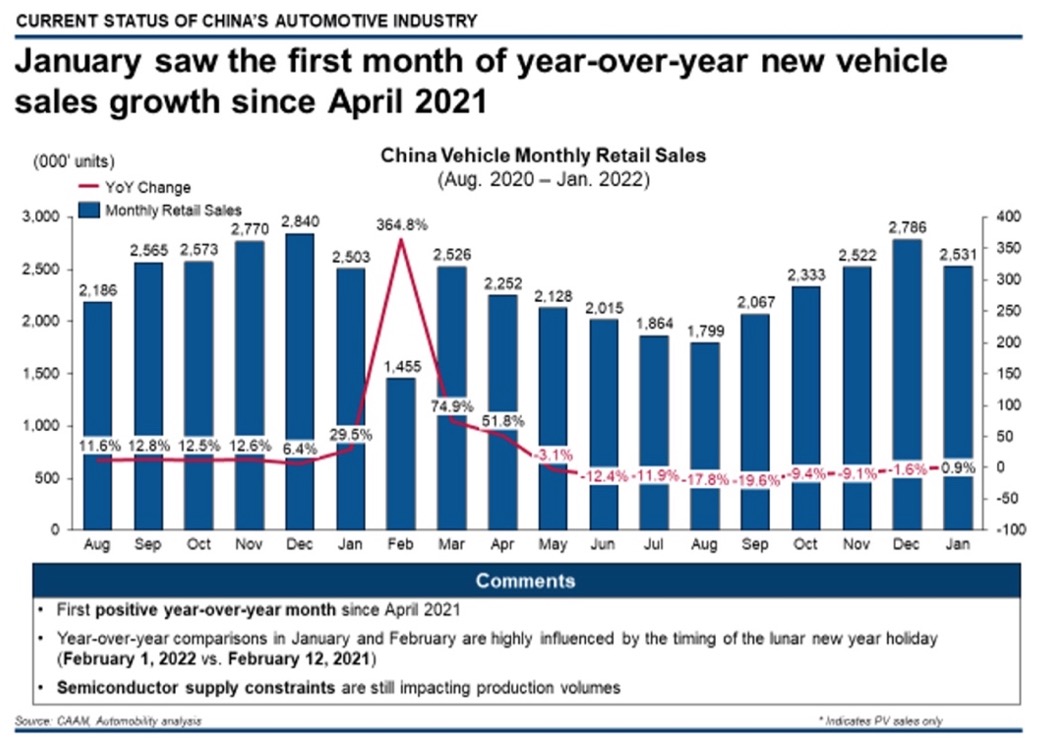Beyond BMW And Porsche: The Broader Implications Of China's Auto Market Dynamics

Table of Contents
The Rise of Domestic Chinese Automakers
The Chinese automotive industry is experiencing a remarkable surge in the market share of its domestic brands. Companies like BYD, NIO, and Xpeng are no longer niche players; they are aggressively challenging established international brands and rapidly gaining global recognition. This success is driven by several factors:
- Technological Advancements: Chinese automakers are investing heavily in research and development, particularly in electric vehicle (EV) technology and advanced driver-assistance systems (ADAS). They're integrating cutting-edge features at competitive price points, often surpassing Western counterparts in certain areas of innovation.
- Competitive Pricing Strategies: Domestic brands often offer comparable features and technologies at significantly lower prices than their international competitors, making them highly attractive to price-conscious Chinese consumers.
- Government Support and Subsidies: The Chinese government provides substantial support to the domestic automotive industry through subsidies, tax breaks, and infrastructure development, specifically focused on boosting NEV (New Energy Vehicle) sales and manufacturing.
- Focus on Electric Vehicles (EVs) and New Energy Vehicles (NEVs): Chinese automakers are at the forefront of the global EV revolution, aggressively pushing the development and adoption of electric and hybrid vehicles. This focus, combined with government incentives, has led to a significant increase in NEV sales and market share.
Data shows BYD's phenomenal growth, consistently topping sales charts in China and making inroads into international markets. NIO and Xpeng, while focusing on the premium EV segment, are also demonstrating impressive growth, proving the viability of domestic Chinese brands on a global scale. The increasing EV market share China is experiencing is a direct result of this domestic brand success.
The Impact on Global Supply Chains
China's dominance extends beyond the manufacturing of vehicles themselves. The country holds a near-monopoly in the production of key components, especially batteries and rare earth minerals crucial for EV production. This presents both opportunities and challenges for global auto manufacturers.
- Dependency on Chinese Suppliers: Many global automakers rely heavily on Chinese suppliers for batteries, components, and raw materials. This dependency creates vulnerabilities.
- Geopolitical Risks and Trade Tensions: The concentration of supply in China introduces geopolitical risks, particularly considering ongoing trade tensions and potential disruptions.
- Potential for Disruption to Global Automotive Production: Any disruption to the Chinese supply chain could have cascading effects on global automotive production.
- Strategies for Diversification of Supply Chains: In response, global automakers are actively seeking to diversify their supply chains, reducing their reliance on Chinese suppliers and investing in alternative sources of materials and components.
This dependence on China's automotive supply chain highlights a significant vulnerability for global manufacturers and underscores the need for strategic diversification.
The Shifting Consumer Preferences in China
Understanding the evolving preferences of Chinese consumers is critical for success in this market. Chinese consumers are increasingly tech-savvy and demand advanced features.
- Demand for Advanced Driver-Assistance Systems (ADAS): Features like autonomous driving capabilities and advanced safety technologies are highly valued.
- Preference for Electric and Connected Vehicles: Chinese consumers are rapidly adopting electric vehicles and connected cars, driven by technological advancement and environmental concerns.
- Growing Importance of Online Sales and Digital Marketing: E-commerce and digital marketing channels are becoming increasingly important in reaching Chinese consumers.
- Influence of Social Media and Online Reviews: Social media and online reviews significantly influence purchase decisions.
These evolving preferences are forcing global automakers to adapt their strategies and product offerings to meet the demands of the sophisticated Chinese consumer. The electric vehicle adoption China is experiencing is being further fueled by these trends.
Government Policies and Regulations
Government policies play a pivotal role in shaping China's auto market. The Chinese government actively promotes the development of the domestic automotive industry and the adoption of new energy vehicles.
- Impact of Emission Regulations on Traditional Combustion Engine Vehicles: Stricter emission regulations are pushing the transition towards electric and hybrid vehicles.
- Government Incentives for Electric Vehicles: Subsidies and tax breaks are incentivizing the purchase and production of EVs.
- Investment in Charging Infrastructure: Significant investments are being made in building out the charging infrastructure needed to support the growing EV market.
- Regulations on Data Privacy and Cybersecurity: Regulations related to data privacy and cybersecurity are shaping the development of connected cars.
The Chinese government policies are actively shaping the future of the auto market within its borders and influencing trends worldwide.
Conclusion: Understanding the Broader Implications of China's Auto Market Dynamics
China's auto market dynamics are undergoing a period of profound transformation. The rise of domestic automakers, the country's dominance in the supply chain, shifting consumer preferences, and active government policies are creating a new global automotive landscape. Staying informed about China's auto market dynamics is crucial for anyone involved in the global automotive industry. Further research into the specific strategies of successful Chinese automakers or the evolving regulatory landscape will provide valuable insights. Understanding these dynamics is essential for navigating the future of the automotive sector.

Featured Posts
-
 D C Midair Collision The Danger Of Unverified Social Media Posts
Apr 29, 2025
D C Midair Collision The Danger Of Unverified Social Media Posts
Apr 29, 2025 -
 Rapid Wien Fans Und Krankl Draengen Nach Klaus Aus Auf Pacult
Apr 29, 2025
Rapid Wien Fans Und Krankl Draengen Nach Klaus Aus Auf Pacult
Apr 29, 2025 -
 New Pw C Office Opens In Bonifacio Global City Philippines
Apr 29, 2025
New Pw C Office Opens In Bonifacio Global City Philippines
Apr 29, 2025 -
 Petition To Remove Pete Rose From Mlb Ineligible List Under Review
Apr 29, 2025
Petition To Remove Pete Rose From Mlb Ineligible List Under Review
Apr 29, 2025 -
 Bundesliga Abstiegskampf Jancker In Klagenfurt Droht Ein Trainerwechsel
Apr 29, 2025
Bundesliga Abstiegskampf Jancker In Klagenfurt Droht Ein Trainerwechsel
Apr 29, 2025
